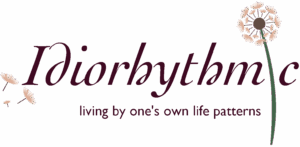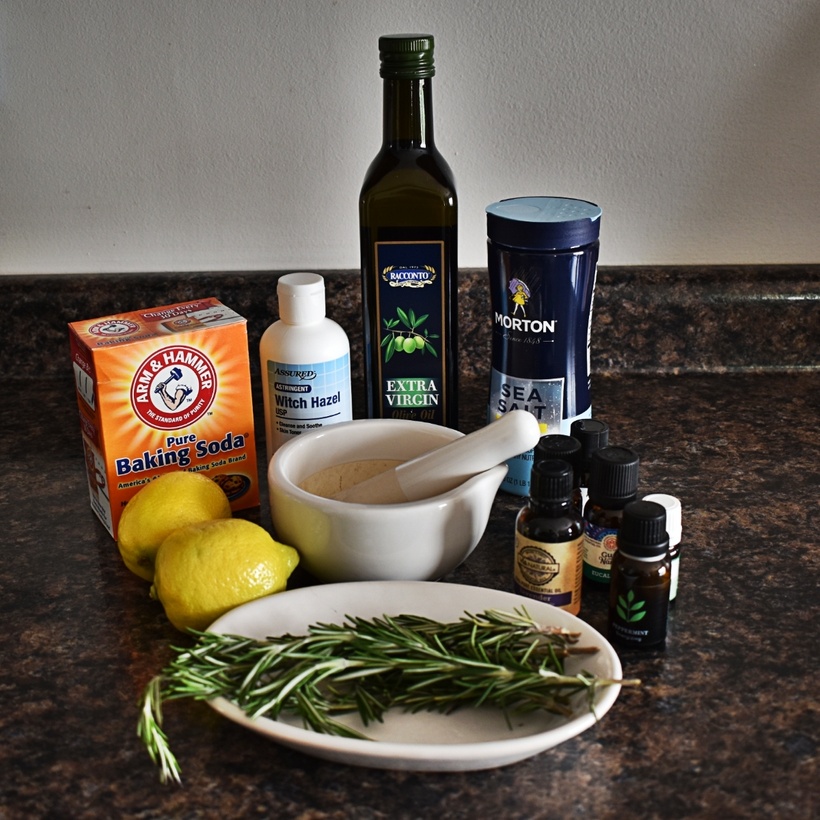My absolute favorite description of The Scent of Lemon & Rosemary I heard was that it is a “witchy home economics book”. The phrase tickles me to no end because that is exactly what I wrote, and it is a constant surprise to me. I’m not a neat and tidy person. I don’t like to do housework. Growing up, I thought of my mother as a neat freak, constantly putting us all to work to clean every Saturday morning and every day after school. We were expected to know what we were doing without any instruction and were chastised when we didn’t clean up to her standards. Even with the perspective provided by time and age, I still harbor a lot of negative feelings towards house cleaning.
And then I wrote a book with chapters dedicated to that topic. I have cleaning solution recipes and advice on how to create a cleaning schedule and tips on how to incorporate magick into your scrubbing. Everything I wrote in the book comes from my own life and experience, but when it is presented on the page I don’t recognize that life. The witch in that book has her shit together. She hasn’t engaged in a never ending battle with ants in the kitchen. There are never dirty dishes left overnight in the kitchen sink. The life in that book is aspirational, and sometimes I can even see it in my grasp, but more often than not I feel like I am failing when it comes to keeping my house clean.
House cleaning is hard and it sucks and there are many reasons for it. There’s never enough time to do a thorough cleaning when you work forty (or more) hours a week. Or there’s not enough energy to do so when you do have the time. Or there’s emotional baggage that comes with dusting. Take your pick, or write in your own answer, it all boils down to the question of how you make something that sucks even remotely magickal? One way is to start small.
We’re going to start with just one thing. Choose a chore, just one. Something that you can do when you feel your space has fallen below your standards. Pick a task that will have the greatest impact for the least amount of effort. Try to choose one that you enjoy, or at least one that you don’t hate. My go to is sweeping the floor. A clean floor can often make the space feel 50% cleaner. You could choose picking up clutter or dusting or straightening the couch cushions.
When you engage in the task, make it a ritual. Be mindful as you go about the task. You can literally narrate what you are doing (either out loud or in your head), saying things like, “I am taking the broom out of the closet. I am sweeping the floor. I am collecting the debris in the dustpan.” This forces you to be aware and present as you work.
Now, add some visualization and intention to your work. Visualize the energy clearing up and a sense of peace coming in to fill the newly cleansed space. I tend to see any stagnant energy as dark mist that is being dissipated as I sweep. It is the focus and attention that I am applying to my actions that is the cause for the energy cleansing. Just like I make sure to be mindful as I work, I make sure to state my intentions as well. “I am cleaning and cleansing this space so it feels fresh.”
Once you have finished the chore, take a moment to ground and center yourself. This is akin to closing a ritual space. You are marking the end of your action and taking time to come back to yourself. Doing so also acknowledges the work you just completed. We have a tendency to rush from one task to another without pause. What you are doing here is the opposite of that. You are building in rest and recognition.
As with any habit or ritual, it’s going to take time and practice to become second nature. You might have to start off with doing your ritual/chore on a schedule: every couple of days or once a week perhaps, the timing depends on the nature of the work. Engage in the chore whenever you look at your home and get assailed by “shoulds” (“I should vacuum. I should clean the blinds. I should dust.”) and you don’t have the motivation to engage in a full-fledged cleaning.
First posted to Patreon on February 22, 2022.

